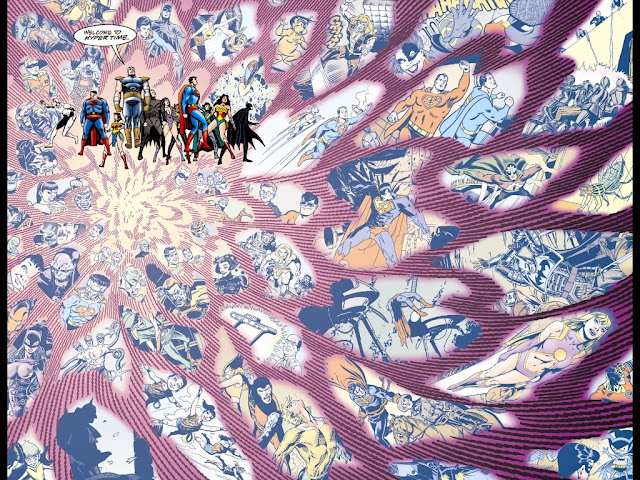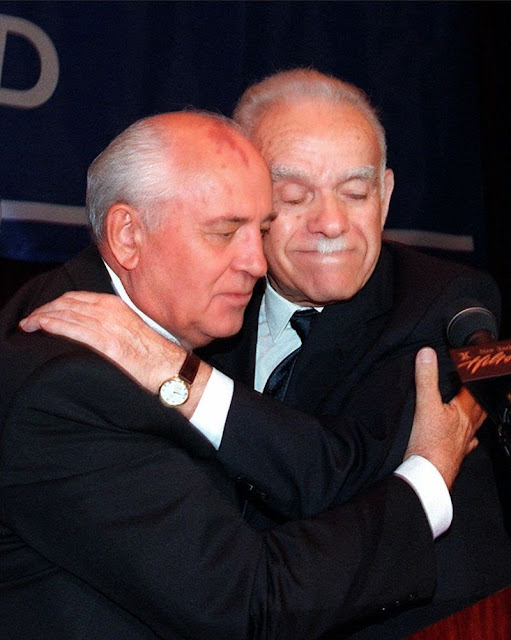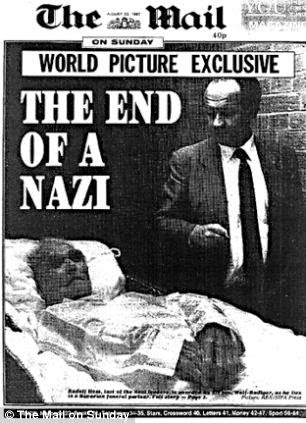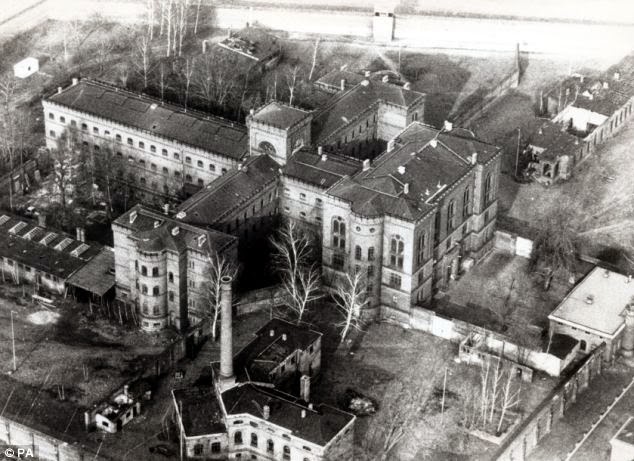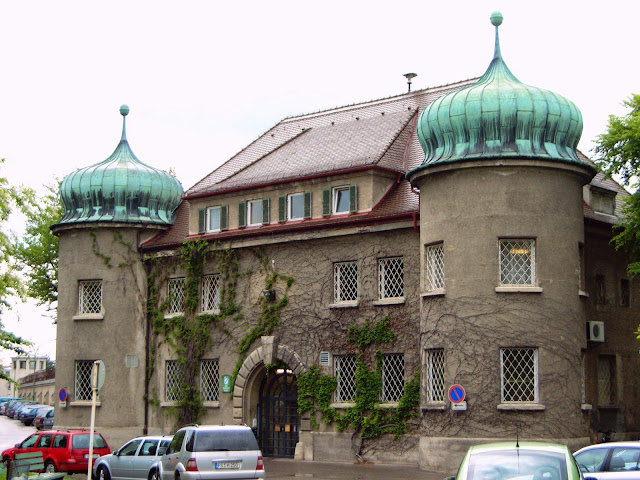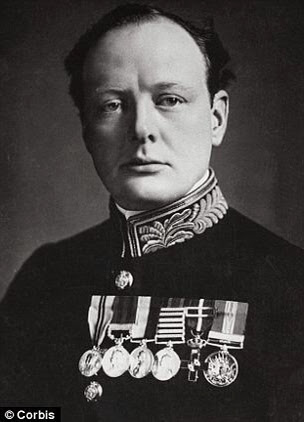Tuesday 23 December 2014
Hypertime
How to Steal the Nuclear Football
Sunday 21 December 2014
The Zionist-WASP Split of 1991 : The Last Ever US-Soviet Summit
Shamir Rebuffs Gorbachev on Emigres
Saturday 20 December 2014
Hollywood Accredits the Memes : Dramatic Incitement to Murder Foreign Leaders
Lockerbie
Q7. Mr. Dalyell : To ask the Prime Minister if he will make a statement on representations from Arab countries about sanctions against Libya.
The Prime Minister : We have had various approaches from Arab countries about sanctions against Libya. We and the Arab League share the same objective--to see a satisfactory outcome to the Lockerbie problem. This, as the Arab League well knows, will require Libya's full compliance with United Nations Security Council resolution 731.
Mr. Dalyell : In the light of my two letters to the Prime Minister on this subject, will he consider putting in the Library a response to the cover story of Time magazine--not exactly a publication of the left--which challenges the whole basis of the Anglo-American position? Will the right hon. Gentleman also consider approaching Spain on the legal proceedings relating to Monzer al Kassar, a Syrian drugs and arms dealer?
The Prime Minister : I saw the article in Time magazine ; I examined it and sought advice on it. The theories about involvement and links with drugs are not new. They were thoroughly examined by the police during the investigation and were discounted at that stage, at the conclusion of the investigation. No evidence has yet been found to link the Syrian, al Kassar, to Lockerbie--but I shall, of course, examine the matter again in view of the hon. Gentleman's representations.
Mr. Wilkinson : Can my right hon. Friend enlighten the House about any dealings between Government officials and the Government of Libya over links between the Libyan regime and the Irish Republican Army? Has the IRA received any supplies from Libya recently? Have the Libyan authorities given assurances to the Government that they will not continue to supply the IRA?
The Prime Minister : The Libyans have provided some information to the Government about their relationships with the IRA ; they did so in Geneva on 9 June. The preliminary assessment of that information suggests that although in places it was incomplete and unsatisfactory, it contains some positive elements which may well prove useful. One positive development is the fact that the Libyans have indicated to us that they wish to cease providing assistance to the IRA. We are not convinced that that is yet the case.
Nazi Mice of the Third Reich
"Urwand said: "Collaboration: it's not my word or invention. I got it from materials from both sides. It's the word that's regularly used to describe their relationship." He said the German head of MGM spoke to the German press of the "satisfying collaboration on both sides".
"It's collaboration in the sense that Hollywood movie executives and Nazi officials are actually collaborating and the Nazis are having the final say," said Urwand. "They didn't want to lose their business. They didn't want to have to go home and come back under different conditions. They also felt Hitler might win the war and they wanted to work with the Nazis to preserve their business."
About his research, Urwand said: "I wouldn't want what I write to be generalisable about Jews, but specific Jews in the movie business made decisions to work with Nazi leaders."
Urwand has uncovered evidence that as late as January 1938 the German office of 20th-Century Fox was requesting Hitler's views about American movies. The letter was signed "Heil Hitler".
Three studios – MGM, Paramount and 20th-Century Fox – did not pull out of Germany until mid-1940. But even after Hollywood started making anti-Nazi films, Urwand says, it continued to erase reference to the Jews because studio chiefs (with the support of Jewish groups) wanted to "avoid special pleading on their behalf".
Friday 19 December 2014
Edwin Black : The Transfer Agreement
The Holocaust Uniqueness Doctrine
Guest: Lucy Dawidowicz
Title: “The Holocaust and the Historians”
VTR: 6/16/82
Hess
TO: The Service Registering Officer for North West Europe
In the Matter of the Births, Deaths and Marriages (Special Provisions) Act 1957 AND in the Matter of the Entry in the Register of Deaths of RUDOLF WALTHER RICHARD HESS
I, ABDALLAH MELAOUHI, of [address - censored due to privacy] do solemnly and sincerely declare as follows:
I worked as a male nurse caring for Rudolf Hess from 1 August 1982 until his death on 17 August 1987 at the Allied Military Prison in Spandau. From 1967 to 1970 I trained as a technical medical assistant in tropical diseases at the Institute of Tropical Medicine in Hamburg. From 1970, I continued my training as a qualified male nurse until 1973 when I received a Diploma Certificate in Nursing. In 1974 I moved to Berlin and worked at Hohengatow Hospital in the intensive care unit until 1976. I then attended the specialist medical school, Gauschule, Wedding, at the recommendation of the Department of Health at the Berlin Senate until 1977 and upon completing that training I received a Diploma in anaesthesia and the intensive care of sick people.
I was then promoted to Superior Male Nurse and went to work at Spandau Hospital(Krankenhaus, Spandau) in the intensive care unit until 1st August 1982 when I went to work in the Allied Military Prison in Spandau as Male Nurse for Rudolf Hess.
On the day of Mr Hess' death, 17 August 1987, I commenced my duties, which involved caring for Mr Hess, as usual at 6.45 a.m. I assisted him, as was usual, with showering and dressing, and was present when he ate a meal at 10.30 a.m. At no time did he give any indication that his state of mind was disturbed or that he was unduly depressed. Shortly after the meal, he asked me to go to the nearby town of Spandau to purchase a ceramic pot to replace one which was defective. Mr Hess would not have made such a request merely to ensure my absence, since I was always absent in any event from midday, during my noon pause.
At 2 p.m. I was called to the prison from my flat which was located outside, but in the immediate vicinity of, the prison (to which I had gone on my return from the town of Spandau). After some delay I reached the summerhouse in the prison garden where I was told that there had been an incident. The small door at the front of the summerhouse was closed.
When I entered the summerhouse, the scene was like a wrestling match had taken place; the entire place was in confusion. The straw tiled mat which covered the floor was in disarray, although only the day before I had cleaned the floor and had left the straw tiled mat carefully arranged in its usual place. A tall lamp had fallen over, but I clearly remember that the cable attached to the lamp was still connected to the main socket. It was this lamp cable which the authorities later said that Mr Hess had used to hang himself. A round table and Mr Hess's armchair had also been overturned. In summary, none of the furniture or equipment was in its usual place, and there is no question in my mind but that a struggle had taken place in the summerhouse.
The body of Mr Hess was lying on the floor of the summerhouse, apparently lifeless. Near to his body stood two soldiers dressed in US Army uniforms. I had never seen either soldier before. I also saw an American guard, whom I knew as a Mr Tony Jordan. There was no cable anywhere near the body of Mr Hess; as I have said, the only cable was attached to the fallen lamp which was still plugged into the wall.
I immediately proceeded to examine Mr Hess. I could not detect any respiration, pulse or heartbeat. I estimated that death had occurred 30 to 40 minutes earlier.
The guard whom I knew as Jordan stood near Mr Hess's feet and appeared overwrought. He was sweating heavily, his shirt was saturated with sweat and he was not wearing a tie. I said to Jordan: "what have you done with him?" He replied: "The pig is finished, you won't have to work a night shift any longer". I told him to bring the emergency case (which contained a first aid kit) and the oxygen appliance, while I commenced artificial respiration. When Jordan returned with the equipment, I noticed that he had first taken the opportunity to change his clothes. The equipment which he brought had clearly been interfered with. The seal on the emergency case had been broken open and its contents were in a state of disorder. The intubation instrument set had no battery and the tube was perforated. Further, the oxygen appliance had no oxygen in it. Yet when I had checked the emergency case and the oxygen appliance that same morning, as part of my normal duties, I am certain that both had been in full working order.
Since I did not have any of the necessary equipment I did the best I could which was to perform mouth to mouth resuscitation on Mr Hess and I asked one of the soldiers in American uniform to conduct a heart massage on him. This was at approximately 3.20 pm. These efforts had no discernable effect.
A doctor and a medical orderly whom I did not recognise arrived from the English Military Hospital in an ambulance. They brought a heart-lung machine into the summerhouse. I tried to operate the machine but it did not appear to function. Mr Hess was taken to hospital. I accompanied him and made further unsuccessful attempts to resuscitate him in the ambulance. There were final unsuccessful attempts to resuscitate him by the doctors at the hospital. He was pronounced dead at the hospital at 16.10 hours.
During the five years in which I daily cared for Mr Hess, I was able to obtain a clear and accurate impression of his physical capabilities. I do not consider, given his physical condition, that it would have been possible for Mr Hess to have committed suicide in the manner later published by the Allied powers. He had neither the strength nor the mobility to place an electric flex around his neck, knot it and either hang or strangle himself. Mr Hess was so weak that he needed a special chair to help him stand up. He walked bent over with a cane and was almost blind. If ever he fell to the ground he could not get up again. Most significantly, his hands were crippled with arthritis; he was not able, for example, to tie his shoelaces. I consider that he was incapable of the degree of manual dexterity necessary to manipulate the electric flex as suggested. Further, he was not capable of lifting his arms above his shoulders; it is therefore in my view not possible that he was able to attach the electric flex to the window catch from which he is alleged to have suspended himself.
Having regard to first Mr Hess' physical condition; second, the scene which I discovered in the summerhouse, in particular the location of the electric flex; and third, the surrounding circumstances as I have described them, I am firmly of the view that Mr Hess could not possibly have committed suicide as has been claimed. In my view, it is clear that he met his death by strangulation, at the hands of a third party.
Declared before me at: [handwritten "Berlin"]
Signature of Declarant: [signature of Abdallah Melaouhi]
on: [handwritten "17.2.1994"]
Qualification of person or officer taking the declaration: Reinhard Gizinski, Notary Public, Berlin
Expert Findings
The cause of death: strangulation. The strangulation lines parallel; the trace ring-shaped.
1. A second post-mortem examination of Rudolf Hess's body shows conclusively that the death was caused by forcible action in the area of the neck with the use of a strangulating object.
2. The expert examination found no indications of a death from natural causes."
Rudolf Hess's family demanded an inquest, saying that Hess had been killed.
Wolf Rudiger Hess:
"I have no doubts whatsoever. That year father could have been pardoned and released from custody. In the early spring of 1987 father himself told me: 'The Soviets are ready to let me go so the British will kill me."
Indeed, for many years now various public organizations and politicians, including Germany, had been calling for Hess's release for purely humanitarian considerations. That decision required the consensus of all the four allied powers. The Americans, British, and French had given the go-ahead a long time ago, but the Soviet Union was categorically opposed to that. With the advent of Gorbachev the situation reversed with the first signals coming from Moscow that it might be ready to back the idea of granting Hess an amnesty on humanitarian grounds. In April 1987, German mass media reported that Gorbachev had already given a formal consent and that Hitler's deputy was just about to walk free.
It is very difficult to stay impartial in investigating this death. Ultimately, Hess was Hitler's interlocutor when he was writing Mein Kampf and a functionary who in effect built the giant Nazi party machine. FRG neo-Nazis are waiting impatiently for confirmation of Hess's violent death to declare him a martyr.
Is it possible, however, to fight Nazism by rewriting history and juggling facts to suit oneself? A lot in the official account of Hess's death can and should be called into question.
Even if he had really wanted to very much, Hess would have been unable to hang himself: Because of a severe form of osteochondrosis, he could not even button up his coat while Abdallah Melaouhi helped him to tie his shoe laces. How, then, could an infirm and helpless person tear off a strong extension cable, tie a knot in it, make a noose, and put it around his neck?
Professor Wolfgang Spann, chief pathologist at the School of Forensic Medicine: "In suicide by hanging, the strangulation line inevitably moves up at the place where a rope or a cable rises to a fastening point. Hess's post-mortem photos show clear marks on the neck: They are parallel. I can say with absolute certainty that this was not a suicide."
This will be debated for a very long time to come. We shall never know.
Hess was captured in 1941. The war was only 2 years old, so he would have known little if anything about atrocities in the East. I doubt he would have been privy to highly confidential SS and Gestapo information.
There is no need to exaggerate the part played in the creation of Bolshevism and an the actual bringing about of the Russian Revolution: by these international and for the most part atheistic Jews. It is certainly a very great one; it probably outweighs all others. With the notable exception of Lenin, the majority of the leading figures are Jews. Moreover, the principal inspiration and driving power comes from the Jewish leaders. Thus Tchitcherin, a pure Russian, is eclipsed by his nominal subordinate Litvinoff, and the influence of Russians like Bukharin or Lunacharski cannot be compared with the power of Trotsky, or of Zinovieff, the Dictator of the Red Citadel (Petrograd), or of Krassin or Radek -- all Jews. In the Soviet institutions the predominance of Jews is even more astonishing. And the prominent, if not indeed the principal, part in the system of terrorism applied by the Extraordinary Commissions for Combating Counter-Revolution has been taken by Jews, and in some notable cases by Jewesses.
The same evil prominence was obtained by Jews in the brief period of terror during which Bela Kun ruled in Hungary. The same phenomenon has been presented in Germany (especially in Bavaria), so far as this madness has been allowed to prey upon the temporary prostration of the German people.
Judenstaat and World War I from Spike EP on Vimeo.
Barry Chamish on Herzl's Atheism, The Balfour Declaration, Transfer Agreement and World War II from Spike EP on Vimeo.
An atheist makes the affirmative statement "God Does Not Exist".
How, then, can a professed atheist make the case for a Promised Land, for a Chosen People, mandated by God himself..?
